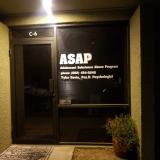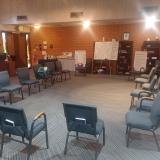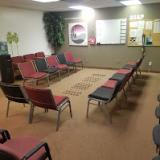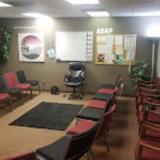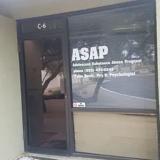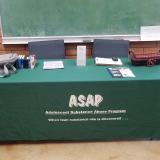More Info
The ASAP Program has proven itself Arizona's finest treatment for teen substance abuse since 1991. ASAP produces the "real-world" changes that yield lasting sobriety for teens and a greatly improved quality of life for the family. Three locations cover the Valley: Scottsdale, Mesa, and Glendale.
About Our Center
Teens and Parents Get Help Together . . .
ASAP, the Adolescent Substance Abuse Program is a substance abuse IOP Program for teens ages 12-18 that has served as Arizona's finest treatment option for teens and their families since 1991 under the direction of psychologist Dr. Curtis Walling.
Three locations -- Scottsdale, Glendale, and Mesa-- cover the entire Phoenix metro area. The ASAP IOP program created by Dr. Curtis Walling is laser-focused on assisting parents in the pursuit of a sober lifestyle for their teen.
At ASAP, active participation includes both adolescents and their parents. The teens attend group therapy three evenings per week for 10 weeks. Parents attend one of these group therapy sessions each week with their teen, in Parent Night. An eclectic treatment model is utilized to approach adolescents from many angles. The copyrighted ASAP curriculum serves as a proven therapy tool at all three sites, with a special focus on motivational interviewing and the stages of change model. ASAP homework is a series of growth-oriented assignments completed between group therapy sessions and on weekends. Click the link to visit our website for helpful resources.
The ASAP Program has three locations to cover the entire Valley: 1) Mesa, at 2530 S. Alma School Road, 2) Scottsdale, at 3839 E. Shea Blvd (Phoenix), and 3) Glendale, at 8607 N. 59th Ave.
How does ASAP Work?
Group therapy is the treatment of choice. The power of positive peer pressure is unmatched as a change agent with teens. The duration of group therapy is very significant, matching the severity of the teen's drug/alcohol use problem. A "best practices" mandate has guided ASAP since its inception. Only proven interventions are utilized. This evidence-based approach yields consistent therapeutic success. Special focus is put on motivational interviewing and the stages of change model. Urinalysis is utilized to assess abstinence and honesty, and combat denial. Parents are taught how to use urinalysis at home as an effective deterrent. Family participation is mandated. Teens attend group therapy three evenings per week for 10 weeks. Parents attend one of those sessions each week at parent night. Families receive the help necessary to re-establish healthy bonds, improve communication, and set proper limits. Teens are taught the coping skills necessary to maintain sobriety: refusal skills, peer selection, problem-solving, communicating with parents, coping with emotions, conflict resolution, identifying high risks, and relapse prevention. Help for parents is available with home contracts, communication, conflict resolution, setting limits, identifying healthy friends, homework assignments, and drug testing at home. Families progress through treatment together. ASAP is designed specifically to assist parents by giving them the resources, tools, and training they need to manage their teen and begin to heal the family.


